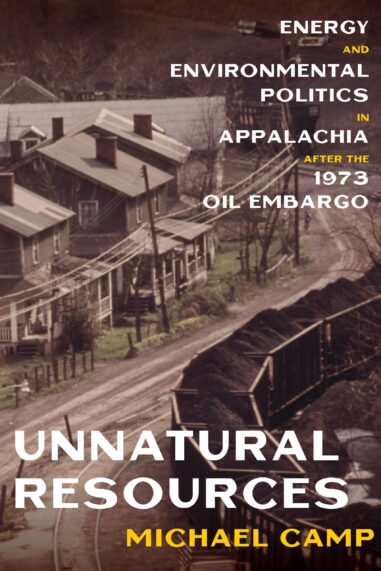

Hardcover $40.00
Request Exam or Desk Copy. Request Review Copy
Unnatural Resources
Energy and Environmental Politics in Appalachia after the 1973 Oil Embargo
Camp’s Unnatural Resources deserves wide reading. It moves from a broad synthesis of energy-environment issues in the United States, to a focus on energy and environmental policy in Appalachia after the 1973 OPEC oil embargo, to conclude that the United States’ desire for energy independence generated continuous conflict between energy producers and environmentalists and has failed to satisfy the diverse interests of conservationists, energy companies, corporations, labor, and consumers.

